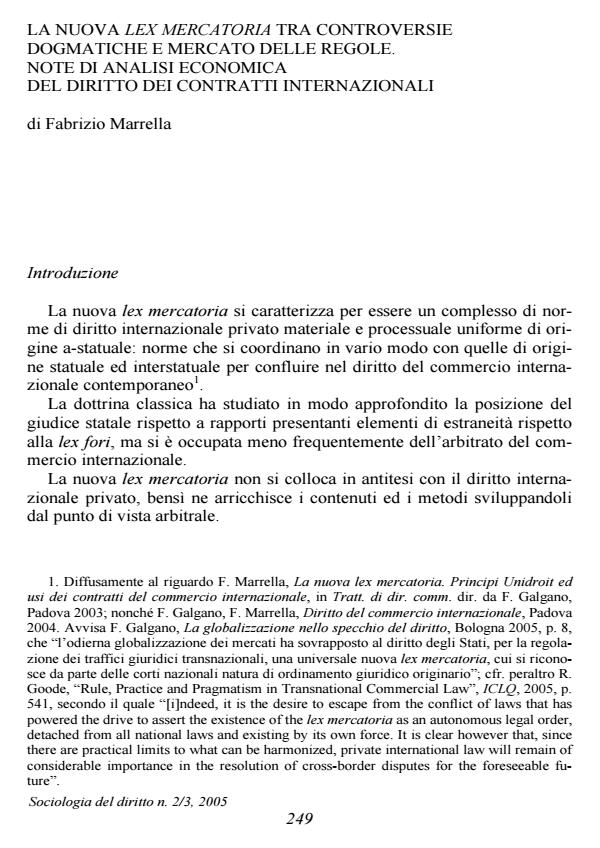La nuova lex mercatoria tra controversie dogmatiche e mercato delle regole. Note di analisi economica del diritto dei contratti internazionali
Journal title SOCIOLOGIA DEL DIRITTO
Author/s Fabrizio Marrella
Publishing Year 2005 Issue 2005/2-3
Language Italian Pages 37 P. File size 225 KB
DOI
DOI is like a bar code for intellectual property: to have more infomation
click here
Below, you can see the article first page
If you want to buy this article in PDF format, you can do it, following the instructions to buy download credits

FrancoAngeli is member of Publishers International Linking Association, Inc (PILA), a not-for-profit association which run the CrossRef service enabling links to and from online scholarly content.
A great deal of discussion has raged and continues to rage about the new lex mercatoria and its constituent elements, to establish whether it is itself a norm or the source of norms, to determine its position vis-à-vis other norm producing sources, to identify its foundations and its strength, to clarify the mechanism whereby it is created and to determine the methods of its application in contemporary international commercial law. As domestic and international jurisprudence confirms that the lex mercatoria is of legal relevance, the next step is to ask why international commercial actors turn to it to solve their conflicts. Some responses to this question can be furnished by a critical use of the conceptual tool of the economic analysis of law. The result is one of unusual considerations that extend beyond the choice of arbitration and of the place where it is to be practised, also encompassing the determination of legal norms applicable to the merits of the conflicts in question. The participants choose the location of arbitration on the basis of the need for neutrality and to minimise the costs of the transaction, usually expressing a preference for those states with a greater degree of arbitration legal capital. This practice of shopping for law, meanwhile, generates competition not only between the legal orders of states, but also between these as a whole and the new lex mercatoria. This latter is expected to be invoked by international commercial actors only as long as it reduces the asymmetries of information about applicable legal orders and the relative costs of legal actions, thus constituting the cheapest choice.
Fabrizio Marrella, La nuova lex mercatoria tra controversie dogmatiche e mercato delle regole. Note di analisi economica del diritto dei contratti internazionali in "SOCIOLOGIA DEL DIRITTO " 2-3/2005, pp , DOI: